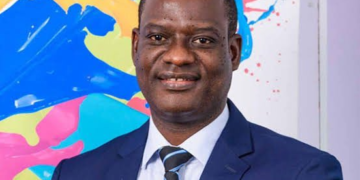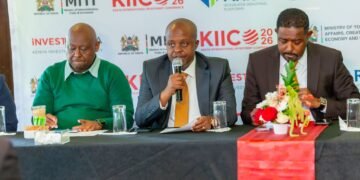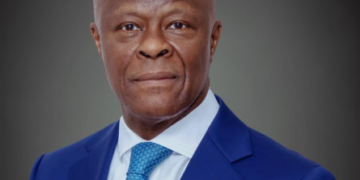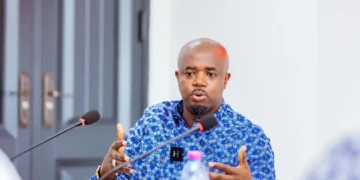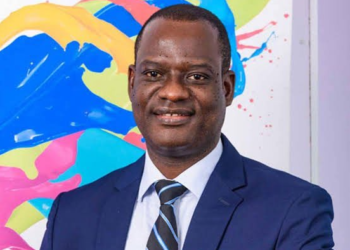Ahmed Idris was appointed the Accountant General of the Federation (AGF) on June 25, 2015.
Interestingly, he came in at a time President Buhari was hell bent on successfully implementing the Treasury Single Account (TSA), a robust policy conceived to consolidate all inflows from all agencies of government into a single account at the Central Bank of Nigeria (CBN).
Despite the initial reluctance of agencies to key into the programme, Idris worked hard to have many of them on the platform in line with the Presidential directive. As his tenure ended last Monday, he explained various reforms carried out by the Treasury House under his watch.
He also spoke on other issues relating to managing government’s finances.
Excerpts:
Fraud allegations
Let’s get one thing clear! Once we post a director to a Ministry, Department or Agency of government, he is 100 per cent answerable to the accounting officer. He is not answerable to us. That is one. There is, therefore, no way by virtue of an accounting officer and even the civil service rule or public service rule that another accounting officer will have an overbearing influence over the affairs of another MDA.
There are certain things that once you hear them, you will just confront the other person who is generating all these sentiments with relevant questions.
Secondly, I don’t want to talk too much about my person. I prefer others to talk about me, particularly, on issues that have to do with postings. What was happening before and what is happening now? Issues that have to do with staff welfare, promotion, including promotion to the position of directors. I will leave for the directors to talk because it affects them. But the summary of it is, if Elim (a director in Amnesty Office) has given me N5 million every month, and he bought a car for my wife; by the way, I have three wives; so, which of them? Which one of them that does not have a car that it is Elim that will buy a car for her? Assuming he bought a car for one of them, did he also buy a car for the husband of the Head of the Civil Service of the Federation, whom he allegedly gave N5 million also? There are certain things you hear, you either throw them away if there is no practical evidence to prove them. They are just fabricated stories.
Initially, when I first heard of it, my first reaction was, oh, I will soon go to court because this is defamation of character. Let somebody come and prove these allegations. You need to come up with practical evidence to prove that you gave me N5 million. And why N5 million? Why not N10 million or N2 million? And by coincidence, the same amount with the Head of Service of the Federation even though I am at an “advantage” with an additional car to my wife and no car to the husband of the Head of Service.
So, journalism should be objective unless the parties themselves involved in the practice have an interest somewhere. Interest doesn’t necessarily mean compromise. I have a good working relationship with my directors and you are free to go round and find out things for yourself without my knowledge. I am not going to let these allegations just go like that particularly when you mentioned how you came about the allegations.
In case you don’t know, this is the season of allegations when the tenure of an accounting officer is coming to an end. People want the position. If they want it, this is not the best way to go about it. Instead of fabricating lies, let them come out objectively with issues that can be substantiated. If you are writing a petition against someone, why hide yourself if you are objective? Unless we are not working for the interest of the public but for somebody else’s interest.
And let me correct an impression, there was never a petition against Elim. We are not in possession of any petition against him. We saw on social media all that transpired. He even sent me a message saying that they were trailing him; that they want to kill him. I replied him and said go immediately and seek police protection. Then I saw a letter from the accounting office of Amnesty and I handed it immediately to the director of admin to act. But let me ask you a question, do you know where Elim is right now? If you don’t know, let me inform you that he is no longer at Amnesty office. The man wrote and said he didn’t want to work with Elim and we acted. Because we would not allow a director, a treasury officer to be at loggerheads with his principal. If we do, then the work will not go on. So, we removed him simply because his principal did not want to work with him, not because he was under investigation. We are not EFCC, ICPC, DSS, the police. But I am duty bound as a chief treasury officer of the federat
ion who is expected to protect public funds; I will not hear those weighty allegations and sit back. So, I quickly assigned another director, the director of inspectorate to go and investigate. I wrote on the petition that we will not sit back after these weighty allegations and so we will protect public funds, we will also make our positions clear to all institutions of government. So, it is a two way traffic.
Please in doing your job, be objective, be constructive. There are certain things you must ask the other party. We removed Elim because of the letter from the CEO of Amnesty. Indeed he (Elim) was the one who wrote these weighty allegations saying government money is about to be spent inappropriately. We only took him to another agency to continue doing his job. If later somebody indicts him of any wrongdoing, then we should be informed accordingly and then we will take the necessary steps and since government’s money is not to be left in the hands of wrong people, we also assign another director to go there. The agency must continue to operate, there must be a head of finance and accounts and so we sent somebody to go and take over.
Reforms and their impact on the economy
First and foremost, this office drives a number of reforms. I’m sure you are aware of TSA. It is part of the reforms. You are also aware of the International Public Sector Accounting Standards (IPSAS), which are a set of standards issued by international body of accountants for application of all public sector accounts. It has already been implemented by several countries and Nigeria has keyed in. We started with cash basis and translated to accrual basis and we started implementing in 2016. So far, the general purpose financial statements of the Federal Government for 2017-2018 are on accrual basis in compliance with those standards.
First of all, you bring yourself up to date in terms of application, global standards, which are accepted and so we are at least up to date. Secondly, in terms of comparison, when you pick up the accounts of Ghana and accounts of Nigeria, you will see it is the same standards that are used. You can identify that one is not using a higher standard while the other is using a lower standard. And with all these, the credibility and acceptability of financial statements are getting better because Nigeria is not operating as an island. We are part of the global economy, we have international partners, we have financial institutions like the IMF, the World Bank and so you can’t jettison them as far as acceptability and setting standards are concerned. So, we comply fully. These are some of the significance of these reforms.
Challenges implementing TSA
Well, you cannot always run away from challenges. Challenges are there but they are more when you are introducing a new system or a new policy. First of all, the basic challenge is that of change. People resist change. Secondly, the commercial banks thought the money is being taken away from them and so they fought the policy. They are resisting and it is obvious why. Thirdly, you have the internal players, the civil servants who, one way or the other, felt they were benefiting in some way from the former practice and now the money is being taken away from commercial banks and taken to CBN. And CBN will not give you any brokerage or commission on deposits or whatever. There is also the challenge of capacity. It is not just about resistance, sometimes people lack the capacity because they don’t know so much about it and have not been trained about it. There is also the challenge of awareness. I understand that in the holy book, it is said “that my people perish for lack of knowledge.” So, these are some of the
things.
There’s also the issue of infrastructure because these things are being driven by ICT. So, the deployment of the right infrastructure is key. We largely now rely on private external providers to drive some of these reforms, particularly some elements of TSA. So, these are the challenges, and when you are dealing with private organisations, you must be careful about the security of the data. So, these are the challenges but we are doing all we can to ensure everything goes smoothly.
In terms of collection, I may not give you the right figure now. Turnover of TSA is running into trillions. I wish I knew this question would come up, the director of TSA would have been here but you are free to take your questions to him.
Resistance from some MDAs
I told you earlier that one way or another, there were some benefits relying on the old practice.
Penalties for defaulters
Some of the defaults/infractions we see may not really be deliberate. When you are bringing in new policies/reforms, you don’t just go ahead with drastic measures to scare the players. What we do is that we have control of the funds through CBN. Wherever we see public funds we simply mop it up. So, the owners of the funds will come out and ask for their funds, then we will ask why they failed to comply and they will give us reasons. Sometimes, their reasons are genuine and sometimes they are not. But whatever it is, we will now take control and that is the main objective of TSA.
Hidden monies in some banks
As far as we are concerned, we have also embraced the whistle blower policy. Whoever sees public funds deposited in public banks illegally because there are some legal funds yet they are public, some agencies like the Nigeria National Petroleum Corporation (NNPC) were given exemptions. Such funds, somebody will not just see them and say I am blowing whistle; you are blowing no whistle on those. Some of these initiatives like whistle blower is to support TSA in addition to revenue generation and to curb corruption and reduce it to the barest minimum. If I were you, I will go and blow whistle on that vehicle allegedly given to my wife and depending on the cost you get your percentage.
Deadline for defaulting agencies
No. There were deadlines and the deadlines have been beaten. We are now moving seamlessly and I challenge whoever sees public money to come forward but let it be truly illegal money. And when I say illegal because some agencies like NNPC by the nature of their business are exempted and West African Examination Council (WAEC), because it is not wholly Nigerian. So, if you see such illegal funds and you blow your whistle, it carries more effect.
Challenge of bringing revenue generated by foreign missions in different currencies into the scheme
We are taking TSA to the next level. We are taking TSA to foreign missions and most of our generations, with exception of oil, which comes through NNPC and other elements of accounts like JP Morgan, which are being taken care of by CBN and NNPC. Largely we generate money through our foreign missions, embassies and high commissions through issuance of visas, passports and other consular services. We have just concluded visitation of foreign missions, preparatory to bringing them on board TSA. There are some specialised service providers who have been duly approved to take over that aspect and to make sure that whatever revenues that ought to come, do come so that we can take advantage of all our revenues.
NNPC & full or partial exemption
NNPC is enjoying partial exemption and it is on Joint Ventures (JVs). NNPC has to come to JV activities with international companies and there is specification on how funds should be kept, so that returns would be made and the sharing formula and so on and so forth and we don’t want to tamper with such international arrangements and that is where such exemptions come in.
Just to add that when we talk of reforms, we give special attention to capacity building and for this reason we have an academy, Federal Treasury Academy at Orozo. We have upgraded that institution and all of these is to provide very effective ground for learning, capacity building, training to the extent that we don’t go out to hire any hall outside our institution. We equipped the school with state-of-the-art facilities. All these were done not even through our budget but through goodwill. Those who take advantage of our services like banks, military through collaborations, synergies, partnerships we invited them to come develop the institution for us and they gladly came. The CBN is now coming in a big way to spend about N4 billion. You need to visit the institution and take a tour of our classrooms, hostels, library, clinic, see the road network and so on, see the recreational facilities, the halls, the furniture including places of worship for both religion. That is what attracted other agencies to us.
Now, National Open University of Nigeria is now coming to us to open NOUN business school so that we will maximize the use of that institution. This is in addition to other institutions like the Army, Air Force, Navy running courses at the academy, atimes they stay there up to four months, taking different courses in financial management and financial related matters.
At the headquarters, we have full medical facilities for staff to undergo full medical tests periodically. We had instances were our staff slumped and died. We have a stationary ambulance and any case the in-house medical facility cannot handle, the ambulance will take the person to any hospital that can handle the case. So, it’s not just about work, it is also about health, welfare.
The issue of posting of directors by the AGF has been a subject of controversy over the years. How have you been able to bring sanity to the system?
For the first time when it comes to promotion, the figures are there, the number of directors promoted within the last two years outnumbered the number of directors promoted in six years combined. Because, there was a time only six were promoted in a year. When we came on board, we promoted almost 50 at a go to unlock their potential. We opened up the opportunities. Now, to boost revenue as we spoke about earlier, directors are going to be posted to selected government owned enterprises like NDIC, CBN, Customs, Federal Inland Revenue Service, Nigeria Port Authority (NPA) and so on. This has never happened, these are reforms. When you unlock the potential, the revenues will come. The major challenge of this economy now is inflow of revenue and we are taking the right steps to boost revenue. And this office has a portfolio anchored by the ministry of finance called Strategic Revenue Growth Initiative. This portfolio has clear mandate from the ministry of finance and we are working assiduously to meet our target
s including de-risking the management of TSA in terms of these service providers. It will be a disaster when you allow one service provider to serve you, what if he decides to be funny? That is why we want to de-risk them, bring in other competent Nigerian companies to partake in the process without compromising standards, security of data and ensuring efficiencies in the system.
Audit used to be analogue, before now you will send audit teams who will go open the records. That is no longer the case. Now, the auditor is in a position to use the system because everything is computerized to conduct an audit with minimal interaction with papers. And we want to make it in such a way that the auditor monitors transaction right from the onset, not postmortem. So, modernization of internal audit connotes giving capacity to the auditor to audit using the ICT tools. There are special audit techniques that have been given to them, all these they have been trained to use. We also have a laboratory where all internal auditors are being trained specifically on audit matters and techniques.
How will you appraise your performance vis-a-viz what it used to be?
I hate to blow my trumpets and I hate to condemn my predecessors. One of the challenges we met was frustration and once you have a group of people who are doing a particular task, if there is frustration it affects productivity, quality of output.
What was the cause of this frustration?
Staff were not being promoted, promotion was not coming as and when due right from the bottom up. But we have removed that, I told you in one go we promoted almost 50 directors. It use to be five, six, seven in a year. And once you promote directors, it goes down and you can feel the consequential effect.
What was the reason behind that stagnation?
I don’t really know. But let me tell you the secret. You don’t just wake up and say you will promote 50 directors at a go, no. You create opportunities for them to take up. We opened up the space and made it wider.
And there is no duplication of duties?
No. Understand that directors were not failing exams, they were passing but the vacancies declared were limited. We created directorate for auditors. There is now directorate for internal audit, we have director of revenue and investment. So that is how we will continue to ingeniously open up the space and to give opportunity to people who have been passing exams to come up and be directors. It doesn’t matter if you are director of internal auditor, finance and account; director of revenue, a director is a director. And more so at the point of posting, you can interchange them but the vacancy, the establishment is there, duly recognized by the head of service and other relevant authorities. Remember, there were years as an accountant or auditor you cannot go beyond deputy director, it means you can’t be a director or permanent secretary, you will retire as a deputy director. That is the most demoralizing thing and it is not because you don’t have the capacity nor the knowledge, not because you cannot do it. That hurdle was surmounted by some key managers in the treasury to whom we give tremendous respect and we recognize and in our own little way we may also recognize for unlocking the opportunities. Don’t mind the size of the person; look at the capacity to deliver.



